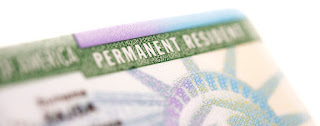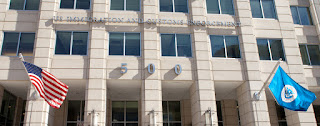Introduction
In this article, we will examine the oral arguments of Solicitor General Noel J. Francisco on behalf of the Government in Trump v. Hawaii, the case concerning the legality of President Donald Trump's entry restrictions against nationals of seven countries in President Trump's September 24, 2017 Presidential Proclamation titled “Enhancing Vetting Capabilities and Processes for Detecting Attempted Entry Into the United States by Terrorists or Other Public-Safety Threats” [
PDF version].
You may see the full text of the oral arguments here: [
PDF version].
Before Reading
Before reading this article, we encourage you to see two introductory articles to understand the issues that are discussed. First, please see our article on the entry restrictions in President Trump's September 24 Proclamations [
see article]. Second, please see our introductory article to the oral arguments [
see article] and, specifically, the sections on “Issues Presented” and “Relevant Provisions” therein. Our introductory article also contains a link to our article on the oral arguments of the respondents against the entry restrictions made by Neal K. Kaytal, which we encourage you to read after this article [
see article].
Oral Argument of Solicitor General Noel J. Francisco on Behalf of Petitioners
Solicitor General Francisco presented arguments in support of the legality of the entry restrictions in President Trump's September 24, 2017 Proclamation. In so doing, he faced questioning from the justices. As we will see, several Justices, namely Justices Ginsburg, Sotomayor, and Kagan, posed difficult questions to the Solicitor General on a variety of issues.
Throughout the questioning, Francisco argued that President Trump had broad authority under section 212(f) to implement the entry restrictions. His argument took the position that section 212(f) allows the President to add restrictions to supplement those that exist in the INA, and that the President's invocation of the authority in this instance did not contravene Congress's authority in the area of immigration. He emphasized the fact that the restrictions were only implemented after a comprehensive interagency review that had been directed in Executive Order 13780. Furthermore, he noted that the restrictions were narrowly tailored and not static, citing to the fact that the restrictions had already been lifted on Sudan in the September 24 Proclamation and on Chad a couple of weeks before oral arguments [
see article]. Regarding the Establishment Clause arguments, Francisco argued against the justices looking to statements that President Trump made while he was a candidate for office. Furthermore, he argued that the entry restrictions in no way constituted a “Muslim Ban” or discrimination against Muslims, noting, for example, that only one of the countries with the top ten largest Muslim populations is currently subject to entry restrictions.
In the following sections, we will examine the exchanges that comprised the Solicitor General's oral arguments and his rebuttal time after Kaytal argued on behalf of the respondents.
Scope of INA 212(f)
The initial part of Francisco's oral argument dealt with the scope of the President's authority under section 212(f) of the INA. Here, Francisco faced questioning primarily from Justices Ginsburg and Sotomayor.
Justice Ginsburg noted that Congress is responsible for making the immigration laws. To this effect, she stated that “[i]t has been suggested in one of the briefs … [that] [212(f)] allow[s] the President to suspend entry but only for a period of time long enough for Congress to say yea or nay.” Francisco rejected the notion that there is any such implicit temporal limit in section 212(f), and he noted that it had never been suggested that there was with regard to prior section 212(f) proclamations, such as the proclamation issued by former President Jimmy Carter restricting visas for nationals of Iran.
Justice Sotomayor focused on whether President Trump's Proclamation was speaking to an issue that Congress had already considered and declined to act on. Here, she referenced the Visa Waiver Program, noting that nationals of countries that meet the program criteria may be eligible to visit the United States without visas whereas nationals of other countries are subject to “a very heightened, extreme vetting process.” She further noted that there was an additional layer of review implemented for nationals of “terrorist countries” or those who had recently visited such countries. We discussed the Visa Waiver Program restrictions referenced by Justice Sotomayor in a distinct article [
see article]. It is worth noting here that the countries selected for entry restrictions under President Trump's initial Executive Order 13769 mirrored those singled out for heightened scrutiny under the Visa Waiver Program. In response, Francisco made two points. First, he argued that section 212(f) “gives the President the authority to impose restrictions in addition to those set forth in the INA…” He added that the provision allows the President “to supplement [the] vetting system,” which he noted was the objective of the Proclamation. Second, he distinguished the Visa Waiver Program from the broader section 212(f) issue by adding that the Visa Waiver Program”provides a special benefit to our closest allies and some of the safest countries in the world…,” but that it does not “address[] whether we get the minimum level of information needed to determine the admissibility of individuals coming in from some of the riskiest countries in the world.”
Further questions dealt with the breadth of the Proclamation. Francisco had, in response to Justice Sotomayor, compared the Proclamation favorably to a similar one issued under section 215(g) by former President Jimmy Carter against nationals of Iran. Justice Anthony Kennedy noted that the instant Proclamation was longer in length than those that were issued by Presidents Carter and Reagan. However, Justice Sotomayor stated that, while President Trump's Proclamation was more detailed, it also covered a larger number of aliens than previous invocations of the statute. Francisco again appealed to the level of detail in the Proclamation as the distinguishing factor.
Jurisdictional Argument
Chief Justice John Roberts asked Francisco to address the Government's consular non-reviewability argument, which it had made in pages 18-26 of its initial brief [
PDF version] and page 3 of its response brief [
PDF version]. In short, citing to prior Supreme Court and Federal circuit court case-law, the Government had taken the position that the President's decision to deny visas to aliens situated abroad by means of a proclamation based on statutory authority invested in the President was not reviewable by courts, contrary to the findings of several district courts and the Fourth and Ninth Circuits in the instant proceedings.
Francisco responded that it was a jurisdictional argument. Were the Court to accept this claim, it would necessarily dispose of the statutory claims under the doctrine of consular non-reviewability. However, Justice Roberts asked Francisco what his position was, then, on the Supreme Court's decision in Sale v. Haitian Ctrs. Council, Inc., 509 U.S. 155 (1993) [
PDF version]. In Sale, the Court considered the legality of a section 212(f) Proclamation that allowed for the United States Coast Guard to suspend the entry of aliens interdicted on the high seas. In Sale, the Government argued in briefing that the claims were unreviewable, but the Supreme Court ultimately decided the case on the merits (in favor of the Government). Francisco responded by noting that the Court did not, in its decision, address the Government's claims that the claims were not reviewable. Chief Justice Roberts asked whether the Court would have been required to address the Government's argument were it to have concluded that there were jurisdictional concerns, and Francisco responded affirmatively. However, Francisco stated that, even if the Court rejected the jurisdictional argument, the Government should still prevail because the Proclamation fell within the President's 212(f) authority.
In short, the issue here is that although the Supreme Court did not address jurisdiction in its Sale decision, it reached the merits, thus suggesting that it did not find the jurisdictional arguments availing. Chief Justice Roberts' questioning on the issue was thus interesting. For example, Josh Blackman, a law professor at South Texas School of Law, has suggested that were the Court to disavow Sale, it could resolve the statutory claims in favor of the Government on the narrowest possible grounds by accepting the consular non-reviewability argument.[1]
Constitutional Claims
Prompted by Justice Elena Kagan, the focus of the oral argument moved to the Establishment Clause claims against the Proclamation.
Justice Kagan began by noting that the Government's main argument against the constitutional claims was the Supreme Court decision in Kleindienst v. Mandel, 408 U.S. 753 (1972) [
PDF version]. Mandel concerned an alien who was excluded from the United States on the basis of his advocating communism. Specifically, a group of scholars who had invited him sued on the basis that his exclusion violated their own First Amendment rights. The Court held that “when the Executive exercises this power negatively on the basis of a facially legitimate and bona fide reason, the courts will neither look behind the exercise of that discretion, nor test it by balancing its justification against the First Amendment interests of those who seek personal communication with the applicant.”
Justice Kagan asked whether the Government would have made the same appeal to Mandel in defense of the original Executive Order 13769, which was issued without the long interagency review process that preceded the Proclamation. Francisco stated that the Government would have made the same argument, but that the argument was even stronger regarding the Proclamation due to the process that went into establishing the vetting baseline.
Justice Kagan suggested that “I think there are ways to distinguish Mandel in this case…” She was then interested in ascertaining what the Government believes that Mandel forecloses. She posited a hypothetical scenario wherein a successful presidential candidate who made denigrating statements about Jews during his campaign then tasks his staff or his cabinet to issue recommendations upon which he could base a Proclamation barring the entry of nationals of Israel. She asked if, in such a scenario, Mandel would preclude the judiciary from reviewing constitutional concerns involving the proclamation. Francisco stated that Mandel does not put the end to review, but rather serves as “the starting point of the analysis, because it does involve the exclusion of aliens…” Regarding the scenario, Francisco stated that if the cabinet were to advise the President that there was a national security risk, he would likely be permitted to follow the advice “even if in his private heart of hearts he also harbored animus.” However, Francisco suggested that the hypothetical Proclamation would likely struggle to satisfy rational base scrutiny under Mandel “[g]iventhat Israel happens to be one of the country's closest allies in the war against terrorism…”
Justice Kagan pressed on with the scenario, noting that such a proclamation against nationals of Israel need not necessarily be based on terrorism concerns. For example, she suggested that the President could have issued the hypothetical proclamation on the basis of “better[ing] our diplomatic hand…” Francisco acknowledged that Justice Kagan's hypothetical scenario presented a “difficult case.” In response, he sought to distinguish the actual Proclamation at issue before the Court from Justice Kagan's hypothetical. Although Francisco's position was that President Trump's campaign statements should not be considered in deciding the legality of the Proclamation and that domestic Establishment Clause jurisprudence does not apply in the immigration context, he stated that even if the Court disagreed with him on both points, the Proclamation would still be found to be constitutional. To support this claim, he reiterated that the Proclamation was based on “a multi-agency worldwide review and cabinet-level recommendation that applied a neutral baseline.”
Justice Kennedy then asked Francisco to take a position on whether the extreme hypothetical scenario would present a free exercise and/or an Establishment Clause claim under the Constitution. Francisco responded that the free exercise claim could be brought, noting that Mandel itself concerned a free speech claim. Justice Sotomayor asked why Francisco excluded Establishment Clause claims. First, Francisco stated that he believed the respondents sought to raise an Establishment Clause claim rather than the other types of claims discussed is because “they would possibly [not] support the types of nationwide injunction[s] that they're asking for.” Second, Francisco stated that he did not think the respondents could bring Establishment Clause claims because the Proclamation applied only to aliens abroad with no constitutional right to enter.
Justice Sotomayor pursued the Establishment Clause line of questioning, suggesting that “the Establishment Clause at its heart is that we cannot be anything but neutral with respect to religion or its practice.” Citing to case-law, Francisco responded that, while he did not disagree with Justice Sotomayor's characterization of the Establishment Clause, not everyone has standing to bring these claims. He reiterated that respondents may have valid free exercise or free speech claims, but that they opted not to pursue these claims because they would not have supported a nationwide injunction.
Justice Sotomayor then shifted gears to question Francisco about the “unitary executive theory.” She noted that under the theory, the President, as head of the Executive Branch, “can hire or fire anyone he wants and [] can put in place whatever policy he wants.” Referring back to Justice Kagan's hypothetical, Justice Sotomayor asked whether a recommendation from Executive Branch officials should be considered in a scenario where “they've been told what the outcome of their deliberations must be…” Francisco responded with two points. First, he noted that Executive Branch officials are duty-bound to protect and defend the Constitution, and that they would likely resign in the face of a plainly unconstitutional order. Secondly, he stated that if the President made statements as President that were part of Justice Kagan's hypothetical, those statements “would undermine the facial legitimacy of the action, even under the Mandel standard.” He then again distinguished the Proclamation from Justice Kagan's hypothetical, citing to the thorough review process, the small numbers of countries affected, and the purpose of the Proclamation to push those countries to improve their information sharing and diligence on security matters.
Regarding a subsequent question from Justice Sotomayor on whether the Court should nevertheless look behind the process that went into formulating the recommendations upon which the Proclamation was based, Francisco asserted that the Proclamation is transparent and that the Court owes the Executive Branch a presumption of regularity and good faith in accepting the reasoning in the Proclamation on its face.
Consideration of Campaign Statements
Justice Kagan asked Francisco whether it was in fact his position that statements made by the President while he is in office could undermine the facial legitimacy of the Proclamation. Francisco affirmed that this was his position. Justice Kagan then questioned why Francisco's position was that statements made prior to the President taking office could not be considered. Francisco responded that campaign statements are made by a private citizen before he takes the oath of office and before, under the Opinions Clause of the Constitution, [he] receives the advice of his cabinet…” This he stated, “mark[s] the fundamental transformation from being a private citizen to [being] the embodiment of the executive branch.” Here, Francisco referred to the Opinion Clause in Article II, Section 2, Clause 1 of the United States Constitution.
Justice Kennedy asked Francisco if he would take the same position if a similar action was undertaken by a local mayor who had made hateful statements during his campaign and then acted upon them in his second day in office. Francisco stated that he would take the same position. However, he distinguished the instant Proclamation from Justice Kennedy's scenario by stating that the Proclamation did not constitute “a so-called Muslim ban.” In fact, he added, if that were the intent, “it would be the most ineffective Muslim ban that one could possibly imagine…” He noted that the vast majority of the Muslim world was excluded from the Proclamation and that three Muslim-majority countries that were covered in past orders were no longer covered. The instant order, he explained, imposed restrictions based on neutral criteria that were applied worldwide.
In his rebuttal, Francisco noted that President Trump had made several statements while in office supporting his previously voiced position that the Proclamation did not constitute a “Muslim ban.” For example, President Trump stated one day after issuing the Proclamation that he had no intention of issuing a Muslim ban. Francisco added that President Trump has praised Muslim Americans who love America and has recognized Islam as one of the great world religions.
Waiver Provision
Justice Stephen Breyer asked a series of questions focused on understanding the waiver provision in the Proclamation, noting that the respondents' brief argued that it was effectively non-existent in practice. Furthermore, he noted that no formal guidance had yet been issued on implementing the waiver. Francisco replied that approximately 400 waivers had been issued as of the date the Government filed its reply brief. He stated that in, any case, the Proclamation would pass muster even without the waiver provision. Justice Breyer then asked if Francisco was asking the Court to consider the issues presented as if there were no waiver provision. Francisco responded negatively, and that he was asking them to consider the Proclamation as written. He added that the waiver should be looked at as “a good thing” in light of the fact that there was no legal requirement for President Trump to include it.
Francisco returned to the waiver in his rebuttal argument. He explained how the waiver process worked, specifically, that a consular officer would affirmatively advise a visa applicant if he or she is otherwise admissible but meets the waiver criteria. Justices Ginsburg and Breyer asked Francisco to address several cases where waivers were not granted that were addressed in amicus briefs, including the case of a young girl with cerebral palsy from Yemen that Neal Kaytal referred to in his oral argument [
see article]. Francisco stated that he could not comment on specific cases withoutalso addressing the particular details. Instead of doing so, he reiterated that a primary purpose of the proclamation is to pressure countries into meeting the minimum information gathering and sharing requirements to ensure that their nationals can be properly vetted before being allowed entry into the United States.
Justice Sotomayor then asked whether the waiver was “window dressing or not,” that is, something that was not used in practice but was being presented to the Court for the sole purpose of buttressing the legality of the entry restrictions. Francisco responded that consular officers apply the same process to all individuals from affected countries and reiterated that he did not know the facts of every case cited in the amicus briefs supporting the respondents.
INA Bar on Discrimination Based on Nationality in Immigrant Visa Issuance
In oral arguments for the respondents, Neal Kaytal had pressed the argument that the Proclamation was illegal because it violated section 202 of the INA, which prohibits discrimination in the issuance of immigrant visas based on nationality. You can read about those arguments in our full article [
see article]. On rebuttal, Francisco set forth the Government's position on this issue.
Francisco took the position that section 202(a)(1)(A) of the INA only addresses the issuance of immigrant visas. He distinguished this from section 212, which sets forth the broader categories of aliens who are, in his words, “allowed to enter in the first place.” (Emphasis added.) Of the universe of aliens eligible to enter under section 212, section 202(a)(1)(A) “governs how we distribute visas amongst that group…” Francisco noted that even if the Court disagreed with this reading and held that section 202(a)(1)(A) prevents a section 212(f) proclamation from suspending the issuance of immigrant visas based on nationality, the Proclamation would still apply to the issuance of nonimmigrant visas based on nationality. Thus, he concluded that he believed that the arguments of the respondents on this point were “simply wrong.”
Please visit the
nyc immigration lawyers website for further information. The Law Offices of Grinberg & Segal, PLLC focuses vast segment of its practice on immigration law. This steadfast dedication has resulted in thousands of immigrants throughout the United States.
- Blackman, Josh. “The Easy Way Forward on Trump v. Hawaii.” Lawfare. Apr. 25, 2018. https://lawfareblog.com/easy-way-forward-trump-v-hawaii













